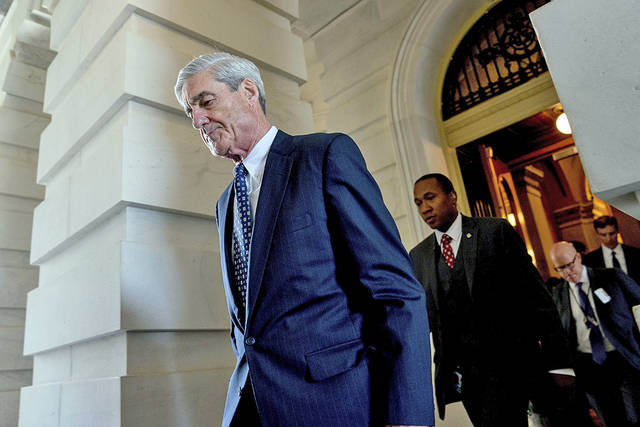WASHINGTON — The U.S. government has long warned that Russian organized crime posed a threat to democratic institutions, including “criminally linked oligarchs” who might collude with the Russian government to undermine business competition. ADVERTISING WASHINGTON — The U.S. government has
WASHINGTON — The U.S. government has long warned that Russian organized crime posed a threat to democratic institutions, including “criminally linked oligarchs” who might collude with the Russian government to undermine business competition.
Those concerns, ever-present if not necessarily always top priorities, are front and center once more.
An ongoing special counsel investigation is drawing attention to Russian efforts to meddle in democratic processes, the type of skullduggery that in the past has relied on hired hackers and outside criminals. It’s not clear how much the probe by former FBI Director Robert Mueller will center on the criminal underbelly of Moscow, but he’s already picked some lawyers with experience fighting organized crime. And as the team looks for any financial entanglements of Trump associates and relationships with Russian officials, its focus could land again on the intertwining of Russia’s criminal operatives and its intelligence services.
Russian organized crime has manifested itself over the decades in more conventional forms of money laundering, credit card fraud and black market sales. Justice Department prosecutors have repeatedly racked up convictions for those offenses.
In recent years, though, the bond between Russian intelligence agencies and criminal networks has been especially alarming to American law enforcement officials, blending motives of espionage with more old-fashioned greed. In March, for instance, two hired hackers were charged along with two officers of Russia’s Federal Security Service in a cyberattack on Yahoo Inc. in 2013.
It’s too early to know how Russian criminal networks might fit into the election meddling investigation, but central to the probe are devastating breaches of Democratic email accounts, including those of the Democratic National Committee and Hillary Clinton’s campaign chairman. U.S. authorities have blamed those hacks on Russian intelligence services working to discredit Clinton and help Trump — but have said the overall effort involved third-party intermediaries and paid Internet trolls.
Former law enforcement officials say Russian organized crime has been a concern for at least a couple of decades, though not necessarily the most pressing demand given finite resources and budget constraints. The threat is diffuse and complex, and Russia’s historic lack of cooperation has complicated efforts to apprehend suspects. And the responsibility for combatting the problem often falls across different divisions of the FBI and the Justice Department, depending on whether it’s a criminal or national security offense — a sometimes-blurry boundary.




